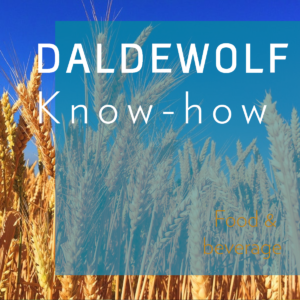As war rages in Europe’s breadbasket, economic sanctions targeting Russian interests are putting pressure on entire sections of the agricultural and food supply chain. The entire sector fears shortages and prices increases. As the first link in the chain, the producer of agricultural products is a key player among food suppliers, and the legislator wants to be able to defend the quality of life of the producer and thus the conditions for quality agricultural production.
By Aude Mahy, Head of the Food & Beverage team - May 2nd, 2022

Dating back to well before the war in Ukraine, the Directive (EU) 2019/633 on unfair commercial practices in business-to-business relations within the agricultural and food supply chain has been implemented into Belgian law by a Act of 28 November 2021. Buyers must now take into account a reinforced protection of suppliers of foodstuffs of agricultural origin, as well as foodstuffs processed from them or containing them. This applies not only to – among others – meat, fish, vegetables, fruit, milk and eggs, but also to all foodstuffs that contain these products as ingredients.
The Act of 28 November 2021 establishes in a “blacklist”, 9 practices considered in all circumstances unfair towards the supplier, and in a “grey list”, 6 practices considered unfair towards the supplier, unless they were agreed in advance in clear and unambiguous terms. For example, are always prohibited, and therefore in the “blacklist”, the payment to the supplier more than 30 days after the delivery date, the cancellation by the buyer of an order within less than 30 days, the claim for payment by the buyer to the supplier which is not related to the sale of agricultural and food products by the supplier, etc. The “grey list” includes, for example, returning unsold agricultural products without paying for them or without paying for their disposal, having to pay for the products to be stored, displayed or listed or made available on the market, or having to pay for advertising by the buyer.
However, the food supplier is only considered a weak party – and therefore protected in its economic relationship with the buyer – if its annual turnover does not exceed 350 million EUR, regardless of the buyer’s turnover. All the same, every supplier remains protected by the provisions of the Code of Economic Law regulating the abuse of economic dependence and prohibiting certain practices between companies which are considered abusive and/or unfair.
In the event of a breach of the new Act, a complaint may be lodged by the supplier with the DG Economic Inspection of the FPS Economy, SMEs, Self-employed and Energy. The administration may impose a fine of up to 80.000 EUR, or even 200.000 EUR if the offender is guilty of serious bad faith. A draft legislative amendment will, if it passed into law, considerably increase the amount of these fines.
Consumers are therefore no longer the only parties who can be considered “weak”. There are many ongoing trends in society today that are forcing a rebalancing of business-to-business practices. For more information, see: MAHY A., « Loi du 28 novembre 2021 : une protection renforcée pour les fournisseurs de denrées alimentaires », Doctrine, in Journal des Tribunaux, 2022/13, n° 6893.